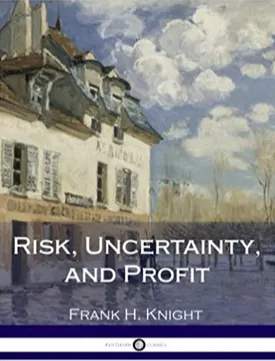Frank Knight
Frank Knight (1885 - 1972) was an American economist who developed the idea of moral responsibility and provided the foundation for the Chicago School of economics. He is widely recognized as the founder of what is now known as the Chicago School of Economics, and his work played an important role in the development of economic thought in the United States.
Frank Knight was born in Thornton, Illinois, in 1885 and was raised on a farm near Bellville, Illinois. He received a bachelor’s degree in music from the University of Illinois in 1906, and then went to Harvard University to receive his Ph.D.in economics in 1910. After graduating from Harvard, Knight went to teach at the University of Iowa, and afterward took a post at the University of Chicago in 1916, an institution that became a major center of economic research and thought.
As a professor at the University of Chicago, Knight was a major innovator in the field of economic theory. He wrote extensively on the topics of risk and uncertainty, arguing that markets are inherently unpredictable and that decision-making must take account of this phenomenon. He was highly influential in the development of economic thinking, being the first to identify the distinction between risk and uncertainty. His book Risk, Uncertainty and Profit, published in 1921, set out his ideas on the subject and remains influential in economic thought today.
In addition to his work on uncertainty, Knight also made important contributions to the field of market ethics. He argued that in markets, morality should be based on an understanding of the limitations of risk and uncertainty, rather than on the pursuit of profit. That what is ethical or moral may not be related to an individual pursuing of the highest profit possible. He argued that moral responsibility should extend beyond the individual. This insight had an important impact on the development of justice in the law and economics.
Frank Knight's other influential works include The Theory of Profit (1924) and Freedom and Responsibility (1952). In both his works and his teachings, Knight showed an appreciation for the value of individual autonomy, stressing that individuals should make decisions autonomously, though he also argued that their decisions should take into account the consequences for other people. In economics, he made important contributions to the concept of ‘cost benefit analysis’, in which decisions are based on an assessment of the social costs and benefits of different courses of action.
Knight was a highly influential thinker, who made important contributions to the development of economic thought in the twentieth century, and his ideas remain relevant and important today. He was a distinguished professor at the University of Chicago, and his work provided the foundations for what is now known as the Chicago School of Economics. His legacy remains strong in contemporary thought, and he continues to inspire, guide and challenge our understandings of what it means to be an economist.

